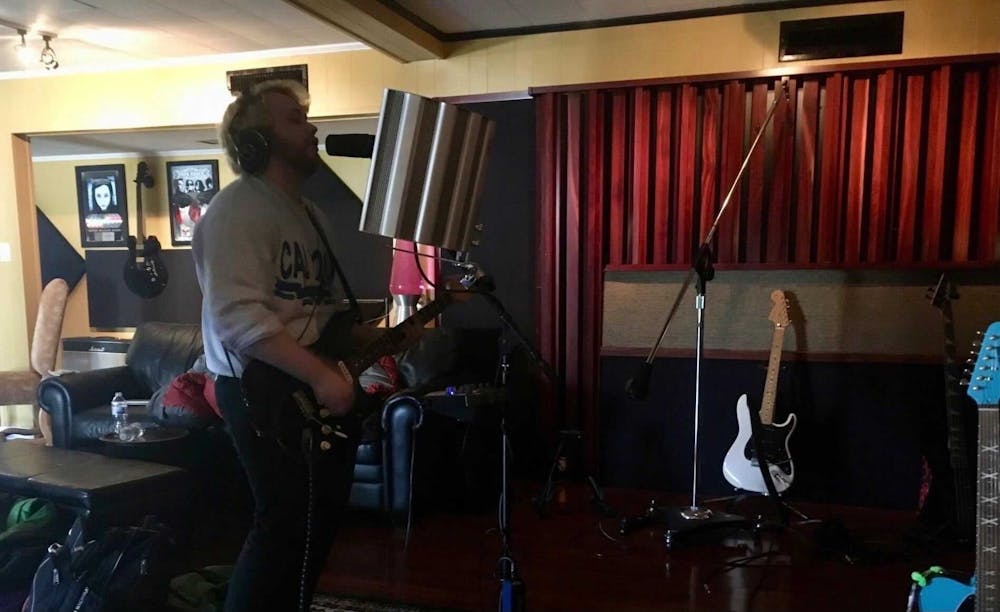Like most industries, the music world is learning to dodge and weave past punches thrown by the pandemic.
A 2020 report by UK Music predicted musicians would lose 65% of their income last year, with some concert-dependent artists losing as much as 80%.
Meanwhile, the Nashville Chamber of Commerce reported 79% of musicians surveyed have seen unemployment since the start of the pandemic.
As live music ceases to a halt, both music consumers and creators have leaned into recorded music as a way to carry the weight of the industry.
The music recording process starts long before the stage, and for Phoenix band Cablebox, it started in a practice space or, rather, two of them.
Vaughan Jones, a senior studying sports journalism, is a bassist and vocalist for Cablebox. The band set out to record its debut album in 2020, and Jones said in order to prepare, he and his fellow members had to find a new place to practice.
“We have a practice space we usually go to but we found out they weren’t very stringent with their COVID regulations,” Jones said.
He and Cablebox had used their old space for two years before and had to move to a spot with stricter regulations that included glass partitions and sufficient sanitization.
“We just really liked that old practice space until COVID hit and we found out they didn’t really care,” Jones said. “It was just awkward having to adjust to a new space. That was our biggest challenge.”
Jones’ father, Michael, is an audio engineer at Sonic Jones Recording in Henderson, Louisiana, where Cablebox recorded its record in December.
The band hunkered in the studio for a week and a half, but was without two of its members who plan to record their parts remotely.
Phoenix producer and audio engineer Steve Parrish said remote recording has been available, but it has become more mainstream over the last year.
“There were plugins that we all knew were available, but it was kind of esoteric back then,” he said. “When the pandemic hit, the companies that made (remote live recording) software had to kind of put their big boy pants on and get the right infrastructure in place.”
Parrish, who runs Desertcoast Productions recording studio out of his house in Phoenix, remembers receiving a phone call last spring from another studio in the Valley.
The studio cancelled a drum recording session, and it was on that day that Parrish realized the impact the pandemic would have on his profession.
“I remember getting off the phone and thinking, ‘Oh, OK, so this is really happening now,’” Parrish said. “Initially, everybody just stopped in their tracks. They were almost paralyzed.”
Despite the initial scare, the pandemic has allowed musicians and artists to record sound from all over the globe and bring it here to the states. Parrish said last year he recorded instrumentals from places like Peru and Spain.
“It kind of forced everybody to think beyond the four walls of their studio,” he said.
Websites like SoundBetter have made it possible to hire musicians from anywhere in the world to work on a project. Parrish said instrumentalists who have the capability to record anywhere have seen a professional boost from the increasing necessity for remote recording.
“You can go online and find talented people that are available and, more importantly, have studios that are set up to accommodate that way of working,” Parrish said. “Not every musician is cut out for that way of working, but if you are and that is something in your wheelhouse, then this new paradigm is going to work out well for you.”
Reach the reporter at ghanevol@asu.edu and follow @GannonHanevold on Twitter.
Like The State Press on Facebook and follow @statepress on Twitter.
Continue supporting student journalism and donate to The State Press today.
Continue supporting student journalism and
donate to The State Press today.




